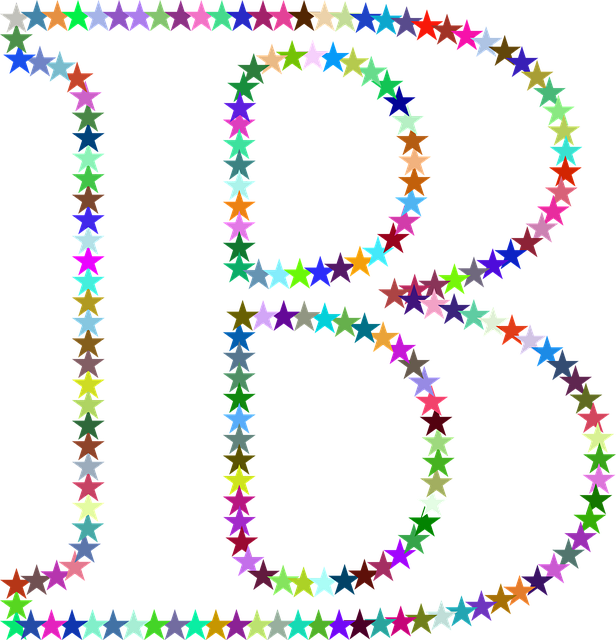Immerse yourself in popular culture, including movies, TV shows, and music, to discover dynamic English slang and colloquialisms not taught in textbooks. Combine this with historical analysis, grammar insights, online discussions, and real-life conversations to enhance learning. Explore phrasal verbs, idioms, misspellings, and sound-symbol relationships for deeper understanding. Engage with native speakers and authentic resources to confidently navigate social interactions and embrace the English Language's playful nuances.
Learning English slang and colloquialisms can be a fun journey into the vibrant landscape of modern English. To master these informal expressions, immerse yourself in popular culture—from movies and music to social media trends. Engage in daily conversations with native speakers to pick up on natural phrases. Study common phrasal verbs and idioms, as they form the backbone of colloquial speech. By combining these strategies, you’ll soon be using English slang fluently, adding a dynamic layer to your language skills.
- Immerse Yourself in Popular Culture
- Engage in Daily Conversations
- Study Common Phrasal Verbs and Idioms
Immerse Yourself in Popular Culture

Dive into the world of popular culture to enhance your understanding of English slang and colloquialisms. Watching movies, TV shows, and listening to music can expose you to various dialects and informal expressions used in different regions and social groups within the English-speaking world. Pay close attention to how native speakers interact in these contexts, as they often use phrases that are not found in formal texts or textbooks. This immersive approach allows you to absorb language in its natural setting, helping you interpret texts more accurately and understand cultural nuances.
Additionally, exploring historical analysis and the grammatical structures behind slang can deepen your learning experience. Engaging with online forums, language-learning communities, and participating in discussions about specific themes within popular culture will enable you to connect with native speakers and fellow learners. Through these interactions, you’ll gain insights into the evolution of slang, its usage across different generations, and regional variations. Incorporating understanding themes from these cultural references into your study routine will not only make learning more enjoyable but also reinforce your ability to navigate and interpret a diverse range of English language expressions, making you a more proficient second language learner. Find us at [your-language-learning-platform] for more tailored resources and exercises.
Engage in Daily Conversations

Engaging in daily conversations is one of the most effective ways to immerse yourself in the English language and pick up on its vibrant and ever-evolving slang and colloquialisms. Whether it’s chatting with friends, watching local TV shows or movies, or listening to podcasts, you’re bound to encounter informal expressions that are not typically found in textbooks. This hands-on approach allows you to understand how words fit together in context, making it easier to remember and use them naturally.
To enhance your learning experience, consider combining conversation with supplementary tools like flashcards, word games, or a reading English grammar app. These resources can help you solidify new phrases and track your progress over time. Additionally, paying attention to body language and voice modulation—aspects often overlooked in formal instruction—can give you clues about the true meaning behind certain colloquialisms. Even working on accent reduction through exercises and practice with native speakers can deepen your understanding of the English Language as it’s truly spoken, bringing you closer to mastering its colorful slang and idioms, such as those you might find at changing English.
Study Common Phrasal Verbs and Idioms

Mastering English slang and colloquialisms involves delving into the vibrant tapestry of informal expressions that enrich native speakers’ conversations. A significant aspect of this learning process is studying phrasal verbs and idioms, which often carry unique meanings beyond their literal translations. These figures of speech are integral to effective communication in everyday contexts, reflecting the dynamic nature of the English language.
By familiarizing yourself with common misspellings and understanding sound-symbol relationships, you’ll gain a deeper insight into these expressions. For instance, many idioms have historical roots that offer clues to their meanings, much like finding hidden gems within the pages of English in history, science, math, and grammar rules. Engaging with native speakers or exploring authentic resources can expose you to a rich array of phrasal verbs and idioms, enabling you to navigate social interactions with confidence and embrace the language’s playful nuances.
Learning English slang and colloquialisms can greatly enhance your understanding of the dynamic English language. By immersing yourself in popular culture, engaging in daily conversations, and studying common phrasal verbs and idioms, you’ll not only improve your linguistic skills but also gain access to a richer, more authentic expression of the language. Remember that mastering slang is a gradual process, so keep practicing and enjoying the journey towards fluency in the English language.
